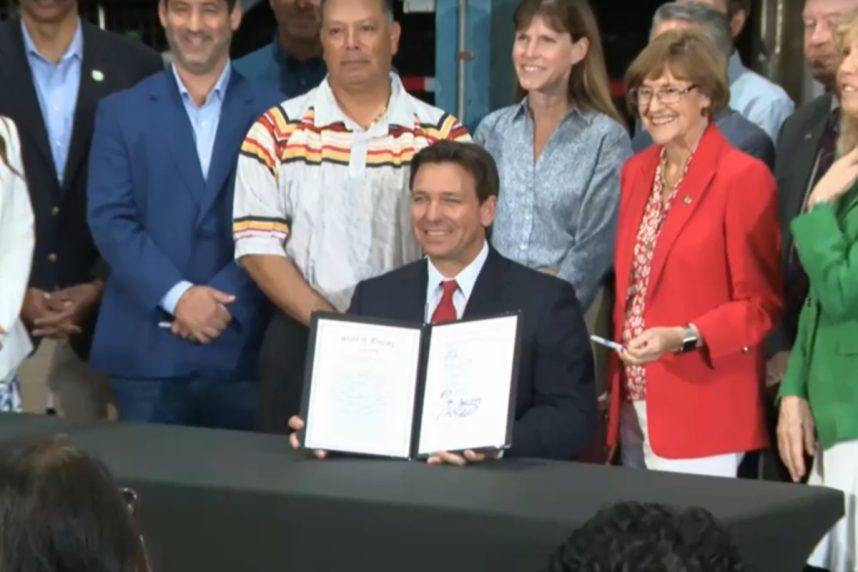Florida Allocates Seminole Casino Money to Environment

Posted on: April 4, 2024, 04:49h.
Last updated on: April 4, 2024, 04:49h.
Florida Gov. Ron DeSantis (R) on Thursday signed legislation requiring most of the state’s money received from its Class III gaming compact with the Seminole Tribe be used for environmental initiatives.

DeSantis and the powerful tribe in 2021 reached new compact terms that expanded the Seminoles’ permitted games to include sports betting, both retail and in-person, plus the addition of roulette and craps at its tribal brick-and-mortar casinos.
In exchange for the sports betting monopoly in the Sunshine State and the added table games, the tribe committed to paying the state $6 billion through the life of the compact that runs through 2030. The money from the Seminole and Hard Rock casinos wasn’t specifically allocated until today when DeSantis signed Senate Bill 1638.
The bill, called “Funding for Environmental Resource Management,” requires that most of the compact revenue go towards supporting water quality improvement programs, environment infrastructure, and the ongoing acquisition and management of conservation lands.
SB 1638 provides $150 million for necessary repairs and upgrades to the Central and South Florida Water Management System.
I was proud to add to our record investments in conservation. pic.twitter.com/9TACmmg8om
— Ron DeSantis (@GovRonDeSantis) April 4, 2024
Funding Tributary
HB 1638 officially went into effect after DeSantis on Thursday also signed companion legislation Senate Bill 7080. That statute establishes the Indian Gaming Revenue Clearing Trust Fund.
Florida’s money from the Seminole compact will first be allocated to the trust fund. The Florida Department of Financial Services will manage the account.
Among Florida’s greatest assets are its natural resources,” said DeSantis. “This revenue stream will further enhance our efforts to conserve our natural resources, protect our waterways, and make our ecological infrastructure more resilient.”
The Seminole compact money is more of a financial tsunami than a stream. The state is projected to receive about $750 million annually from the tribe’s six casinos. HB 1638 requires that 96% of that money go to the Indian Gaming Revenue Clearing Trust Fund.
“In recent years, our state has made unprecedented investments to protect our wild spaces, improve water quality, and preserve our natural resources,” added Florida Department of Environmental Protection Secretary Shawn Hamilton. “The consistent revenue stream from this legislation will allow the state to double down on its efforts to protect Florida’s natural resources for generations to come.”
DeSantis Signs Another Gaming Measure
Along with the Seminole money going to environmental causes, DeSantis on Thursday signed legislation that allows the state to retain and sell seized gaming machines and assets related to unlawful gambling operations.
House Bill 5203 allows illegal gambling terminals seized by the Florida Gaming Control Commission to become state property. The legislation provides a legal framework for the FGCC to subsequently sell such property and deposit the proceeds into its Pari-Mutuel Wagering Trust Fund, which covers its operating costs.
Cash “and other things of value” obtained through investigations are also now able to be kept by the state. The law will greatly improve the state’s ability to confiscate gaming machines that the FGCC deems illegal, most notably the arcade games that continue to litter retail shopping centers under the guise of being labeled skill-based amusements.
The FGCC oversees all forms of commercial gaming in the state aside from the state-run lottery. The agency regulates slot machines in Miami-Dade and Broward counties, pari-mutuel wagering, and cardrooms. The commission also has oversight of tribal gaming compacts “and other forms of gambling authorized by the State Constitution.”



